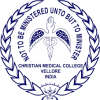How to become a Cardiovascular Technologist
Overview, Courses, Exam, Colleges, Pathways, Salary

Overview
Who is Cardiovascular Technologist ?
Cardiology is a branch of medicine which deals with disorders of the circulatory system and heart as well as parts of. The one who do medical diagnosis and treatment of congenital heart defects, coronary artery disease, heart failure, valvular heart disease and electrophysiology are known as Cardiac Technologists. Cardiac Technology is an allied course in medicine. Cardiac Technologists will use a variety of instruments to diagnose and treat heart diseases and vascular problems. Cardiac Technologists assist physicians during invasive cardiovascular testing, also be trained to assist the physician in treating different heart conditions that include diseased vessels, structural problems and blood clots. The role of Cardiac Technologists is to perform tasks that require less medical training before and during the procedure so doctors can focus on the results of the test, also provides assistance to the physician in diagnosis and treatment of heart, lung, and blood vessel disorders by conducting invasive and non-invasive diagnostic tests, echo test , maintaining equipment, and recording test results.
Typical day at work
What does Cardiovascular Technologist do?
- To register patient in the patient record and to verify medical history.
- To support physicians in diagnosing and treating cardiac vascular ailments.
- To complete electro-cardio-grams (EKG or ECG) by attaching electrodes to the patient's legs, chest, arms.
- To obtain a baseline heart-rate reading and resting blood pressure and to observe the effect of increased exertion.
- To maintains and check equipment , computers and cardiovascular systems are operating properly.
Abilities and Aptitude needed
What are the skills, abilities & aptitude needed to become Cardiovascular Technologist?
To become a cardiovascular technologist, the aspirants must need to develop certain skills like compassion and empathy towards patients, must have logical and critical thinking skills to identify alternative solutions, conclusion and approaches to solve problems. The cardiovascular technologist must also have skills like good patience, problem solving skills, equipment selection knowledge, dexterity, detail orientation skills, ability to manage time and coordination.
Salary
Salary for Cardiovascular Technologist?
Starting salary of a Cardiac technologist depends upon the following factors -Job location, Profile of the employer, Skills and aptitude of the employee. The average annual salary offered in India to successful graduate’s ranges between INR 2 and 20 lakhs.
Pathways
How to become an Cardiovascular Technologist?
Entrance Exam
Entrance Exam for Cardiovascular Technologist ?
Most institutes offering the course admit students based on their merit list. Some institutes conduct their own entrance tests for offering admission, followed by a round of Personal Interview. Admission process generally differs from college to college.
Courses
Which course I can pursue?
Best Colleges
Which are the best colleges to attend to become an Cardiovascular Technologist?
Industries
Which Industries are open for Cardiovascular Technologist?
- Diagnostic lab
- Private practice.
- Public sector.
- Private sector
- Health care industry
- Hospital
internship
Are there internships available for Cardiovascular Technologist?
The internship allows students to gain experience working in organization while studying in University. Training will help the aspirants to get trained and gather practical knowledge in Conduct cardiovascular tests, will learn to Obtain and record patient identification, medical history and test results, recording devices and laboratory instruments, Record patients’ cardiac activity using specialized equipment. The internship will also help the aspirants to learn about testing procedures, Help the patients to reduce anxiety, monitor patients’ blood pressure and heart rate during diagnostic, monitor patients’ safety during tests, alerting physicians to abnormalities or variations in patient responses, therapeutic procedures to notify if something appears wrong, Help the patients to reduce anxiety.
Career outlook
What does the future look like for Cardiovascular Technologist?
The future for cardiovascular technologists appears promising, as advancements in healthcare and the increasing prevalence of cardiovascular diseases create a growing demand for skilled professionals in this field. Here are some aspects that indicate a positive outlook for cardiovascular technologists:
Increasing Cardiovascular Disease Rates: Cardiovascular diseases, such as heart disease and stroke, continue to be leading causes of mortality and morbidity worldwide. As the population ages and risk factors such as obesity and diabetes persist, the demand for cardiovascular healthcare services, including diagnostic testing and interventions, is expected to rise. This translates into increased job opportunities for cardiovascular technologists.
Technological Advances: Rapid advancements in medical technology have a significant impact on the field of cardiovascular diagnostics and interventions. Cardiovascular technologists benefit from improved imaging modalities, such as echocardiography, cardiac catheterization, and vascular ultrasound, which allow for more accurate diagnoses and treatment planning. Keeping pace with technological advancements and acquiring new skills will be crucial for cardiovascular technologists to adapt to evolving practices.
Interventional Cardiology Procedures: The growth of interventional cardiology, which involves minimally invasive procedures to treat cardiovascular conditions, has expanded the scope of practice for cardiovascular technologists. Technologists can assist in cardiac catheterization procedures, angioplasty, stent placements, and other interventions. The demand for professionals skilled in assisting interventional procedures is expected to increase.
Non-invasive Testing and Imaging: Non-invasive cardiovascular testing, such as echocardiography, stress testing, and electrocardiography, play a vital role in diagnosing and monitoring cardiovascular conditions. As the importance of preventive care and early detection continues to be emphasized, the need for cardiovascular technologists proficient in these non-invasive testing techniques will remain high.
Collaborative Healthcare Teams: Cardiovascular technologists often work closely with cardiologists, cardiovascular surgeons, nurses, and other healthcare professionals in a collaborative care model. The importance of multidisciplinary teams in cardiovascular care is growing, which opens opportunities for technologists to contribute to patient care, treatment planning, and follow-up.
Career Specialization: Within the field of cardiovascular technology, there are opportunities for specialization in specific areas such as echocardiography, vascular ultrasound, invasive cardiology, electrophysiology, or cardiac catheterization.




.webp)


